SEASON 01 | EPISODE 05
Nobody Would Believe Me (Part 2)
As we learn from Detective Mike Weber, the father in a Munchausen by Proxy case can be the most important ally–or the biggest obstacle–in protecting child victims from abuse. In part two of Andrea’s examination of the father’s role in MBP cases, Andrea speaks to John, a father who lost everything after the system failed his children.
Host Andrea Dunlop:
https://www.andreadunlop.net
For behind-the-scenes photos:
https://www.instagram.com/andreadunlop/
Support the show and get exclusive bonus content:
https://patreon.com/NobodyShouldBelieveMe
For information and resources:
https://www.munchausensupport.com
The American Professional Society on the Abuse of Children’s MBP Practice Guidelines can be downloaded here.
More about Mike Weber:
https://mikeweberconsulting.com

Andrea: [00:00:00] Nobody should believe me is a production of large media. That’s L A R J Media. Before we begin a quick warning that in this show we discuss child abuse and this content may be difficult for some listeners. If you or anyone you know is a victim or survivor of medical child abuse, please go to munchhausen’s support.com to connect with professionals who can help.
Andrea: If you are curious about this show and the topic of munchhouse and by proxy, follow me on Instagram at Andrea Dunlop. If you would like to hear a second season of this podcast, the best thing you can do is go over to patreon.com and support the show there. We are gonna have amazing bonus content that we’re gonna be releasing both during the season and in between seasons over there, including extended interviews with our experts and a companion episode from me each week going behind the scenes.
Andrea: Of the making of that specific episode, answering any questions for you that come up, and also just talking a little bit about how this content is landing out in the world. So go [00:01:00] to patreon.com and search for nobody should Believe me if monetary support is not an option for you right now. You can also rate and review the podcast on Apple and share on your social media.
Andrea: Word of mouth is so important for podcasts and we really appreciate it.
Andrea: People believe their eyes. That’s something that actually is so central to this whole issue and to people that experience this, is that we do believe the people that we love when they’re telling us something. If you questioned every thing that everyone told you, you couldn’t make it through your day.
Andrea: I’m Andrea Dunlop, and this is, nobody Should Believe me. So as we reported on child abuse from the father’s point of view, we came across one story that shows how even a case where the evidence is really strong can go wrong because of the outcome. In this next case, the participants wanted to keep their identities private, and so we’re calling the [00:02:00] father, in this case, John, and the alleged perpetrator, Sarah.
Andrea: I wanted to share this story because these are the patterns that we keep seeing, and we’ve learned along the way that this form of abuse happens across socioeconomic backgrounds, across races, different ages, different places in the country, different places in the world. But there are these things with all that variety that keeps showing up again and again.
Andrea: Just as with Hope. Sarah had not only lied about her children’s health, but lied about her own health, her professional background, and there were other lies throughout the course of their marriage. My producer Tina and I sat down with John and his new wife. When we traveled to Fort Worth to interview people for this podcast, I was immediately struck by how warm and open John was with us and how generous he was with his story, because I knew it wasn’t gonna be an easy one for him to tell.
Andrea: He told us about when he had been a small business owner in the [00:03:00] Fort Worth area, and when he’d first met his ex-wife Sarah, she had seemed lovely and normal attractive woman. When he first got to know her, she told John that she had worked as a nurse in a NICU and just loved kids. But as it turns out, this was one of the earlier lives, John uncovered.
John: She had no medical, um, education, had no nursing degree, and purported herself to be a nurse when my son was born and she said, well, no, I’ve worked here. I don’t think I ever said I was a NICU nurse. So she went into denial that she had ever said it. And under those circumstances with just having a new baby, I didn’t press the coin.
John: It didn’t seem, it seemed like she was. Embellishing her story originally, but then I learned the truth and uh, found out that it was what I would [00:04:00] consider to be just a person trying to make themselves, uh, seem more important than they were.
Andrea: At this point, John had begun to have some suspicions, but with an infant son that was coming home from the hospital. He was completely overwhelmed When they arrived home, after Jimmy was out of the nicu, Sarah moved into Jimmy’s room to keep an eye on him. Most mothers can relate to having a brand new baby, especially if it’s your first and being really nervous about every breath they take.
Andrea: I think even if your child hasn’t had any complications, a lot of us feel that way in the beginning. However, this went on a little bit longer than most people would’ve expected, and especially after Sarah became pregnant with their second child and they had their second child, John began to become concerned that Sarah was actually neglecting their younger child.
Andrea: So with Sarah fixated on Jimmy John took primary parenting [00:05:00] responsibilities, and then something very strange happened. John noticed something disturbing on Sarah’s computer.
John: She left the computer open and she had been, um, communicating on the computer with her ex-husband about, uh, sexual episodes and described in detail having just been with him.
John: In fact, as it turned out, I learned later that she was just with him, came to lunch with me in a, uh, sweater that he had purchased for her.
Andrea: Here’s Mark Feldman, clinical professor of psychiatry at the University of Alabama, and author of the book, dying to Be Ill.
Mark Feldman: Uh, a common underpinning is deceptiveness and impulsivity and poor judgment and that kind of person.
Mark Feldman: Is likely to engage in all the kinds of behaviors, uh, whether it’s infidelity, lying [00:06:00] about aspects of their lives that may not even involve an illness in, in any way when it’s severe. We call it pseudo fantastica, which is an Latin term for pathological line where the person mixes some truth with fiction, which makes for the best lie in a sense.
Mark Feldman: Uh, it’s really hard to tease apart what’s true and what isn’t.
Andrea: Amidst all of this drama. John and Sarah eventually got a divorce and Sarah hired a lawyer. Unfortunately, for John, he did not because Sarah, by all accounts of those who knew her, was an attractive, persuasive, smart woman who had the backing of a really wealthy family.
Andrea: That’s a tough thing to come up against from a legal standpoint. Sarah reassured John as many times as he needed to hear it, that she was not out to separate him from the kids. That even if she [00:07:00] technically had full custody, she would let him see them as often as he wanted. She knew he was a good dad and he really didn’t feel worried that she was out to separate him from his kids.
Andrea: John just figured that this was the easiest way to go and didn’t wanna end up in a long, drawn out court battle. In 2008 when John and Sarah were divorcing, John believed he’d have joint custody of their children until one day Sarah took their son to a party.
John: It was a, uh, social gathering at some friend’s house where there was drinking involved.
John: It was actually a pajama party that, uh, she had attended with friends to meet other people. An adult pajama party, an adult pajama party, and the kids were left upstairs. To play by themselves. And it’s interesting to note that the family that ha that was hosting the party we were both friends with when we were married, And at [00:08:00] um, the times that they had other in-home social gatherings, you know, parties and so forth, Christmas and so forth, they had always had someone to watch the children upstairs.
John: And this time that did not occur. There was no one to watch. The children and the boys were climbing on the second story rail. I was at work and I received a phone call at work of what happened. So I raced to the location and he, he had already been Care Flighted, although he was nearer the Cook’s Children’s Hospital.
John: He was Care Flighted to one of the Dallas facilities. According to my ex-wife at that point, that was a better facility for him to go to. And so I quickly left from that location and drove to Dallas, which is a bit of a drive, and first time that I saw him, he was in the hospital in
Andrea: Dallas, five-year-old.
Andrea: Jimmy was treated at the hospital and sent home after about three days.
John: When we [00:09:00] left the hospital, he rode with his grandparents and mother and I drove separately and they were headed to my house where he was going to stay with me and her. And once we got to the house, she had changed her mind and my son was in the arms of his grandmother and they.
John: Completely blocked me from getting anywhere near him, and ultimately got in the car and drove away. I cried. Our relationship became very strained after that. He was not allowed in my home. He was not allowed in my personal care for a long time, and whenever he was with me, even after that point, she would give me a, a whole.
John: Laundry list of how to take care of him and, uh, would always complain that I was putting him in dangerous situations. And he came with so many medications. I mean, that was one of the things that, uh, really came out. He [00:10:00] had, uh, about 15 different medications that she had him on, or the doctors I should say, had him on because she had told one doctor of his symptoms that doctor.
John: Would tell her, well, he ha doesn’t have this, so he must not have that particular thing. She would go to the next doctor, add the symptoms that he needed to have to the next doctor.
Andrea: The entire focus became your son.
John: Medical focus became on my son and his medical problems. She liked to be the person who knew what was going on.
John: Even when I went to doctor’s appointments with her, we would get into arguments because my response was always, well, he doesn’t have that symptom at my house. Well, he doesn’t have that problem when he is with me. You know, in fact, I even had him riding a bike and riding a, you know, one of these little scooters that the kids have and, oh, that was terrible.
John: [00:11:00] That was just terrible that I let him do anything where he could fall.
Andrea: Many other dads, I think, who are living with the perpetrator and are subject to. As you described this really intense manipulation day in day out, that they’re just so baked in it that it takes them a while to sort of come up for air, and that’s actually really understandable.
Andrea: Here’s Detective Mike Webber who investigated this case. The main thing for the public, I think, to understand about these investigations is this is abuse, it is physical abuse. It is psychological abuse. It is emotional abuse. Many times it’s educational abuse. It is long-term torture of these kids, uh, and using the medical establishment to commit that torture.
Andrea: Even though John observed a healthy son every time he spent time with Jimmy. Sarah continued to insist that he was having every medical issue [00:12:00] under the sun, complications from his head trauma that she said he had following a coma that he was allegedly in after the fall led to a brain shunt being put in his skull to relieve fluid off the brain after he developed a condition called, Normal pressure hydrocephalus, a disorder, which is almost never found in children.
Andrea: John would later learn At this point, Jimmy’s shunt had become infected, so Sarah took him to the hospital. They suspected that he might not actually need that brain shunt, and they shut it off. After they shut it off, they realized that in fact, he did not need it. And Sarah was not very happy with this development, so she took him back to a hospital up north where the doctors were more incredulous and had the brain shunt put back in.
Andrea: In addition to all of the medical back and forth, she’s also claiming that he’s developed developmental [00:13:00] disorders. That he’s autistic. She has him in a special school that’s attached to the children’s hospital in Texas where she’d been taking him, claiming that he’s never going to lead a normal life, given how much more credulous the doctors up north were of Sarah’s claims.
Andrea: She continued to. Bring Jimmy there for treatment hundreds of miles away from where his dad lived. And given the custody agreement that John had agreed to back when he was on good terms with Sarah, he was unable to see his son as often as he would like, and often their visits were confined video chats in between procedures that Jimmy was having at this hospital.
Andrea: Sarah was pursuing treatments for Jimmy in two separate states on the Texas side. This landed on Detective Mike Webber’s desk,
John: and then that’s when I met with CPS P and law enforcement about the case, and they went on to explain to me what. [00:14:00] Munch housing by proxy, uh, medical child abuse was all about.
Andrea: So how did that land on you when they explained that to you?
John: I cried. I called, uh, one of her, uh, relative who I knew and talked with her, and she told me that I needed to get an attorney immediately and get to the bottom of it.
Andrea: John finally had custody of his children
John: during the investigation. The, uh, court ordered, uh, me to have custody. She had supervised visitation during that period, so I did have custody of the children for two years.
Andrea: When you took your son and your other child, How did his health do under your care?
John: I took him immediately to the local hospital in my county, took him to see one of the highest respected, uh, [00:15:00] doctors at that hospital, and she immediately, um, took him off his medications. That was the first thing that happened.
John: He was on, uh, medications for a variety of different things. He was on antipsychotic medications. He was on, uh, medications that just made him so drowsy on the way to school. As I was driving him to school in the morning when she still had custody and he was at my home sometimes, uh, when I would drive him to school, you could just see him gloss over, you know, his, his whole expression changed, uh, from a bubbling boy.
John: To a, um, drugged child who was at that point unable to comprehend a lot of things, and once I got custody of him, he was immediately taken off the medication.
Andrea: Where was your mind in all this as you’re watching your son blossom from this [00:16:00] medically fragile child to a healthy child?
John: That I was right, that everyone around me was right.
John: That she was doing something awful to him that was abusive and stunted his, uh, childhood. He was not able to. Play sports. Uh, he was in a special needs school. Um, we immediately got him enrolled in the fifth grade at a local, uh, elementary school. We signed him up for baseball. In fact, I took, uh, two or three months off, uh, from my job and got him moving forward in terms of his skills.
John: The, the one thing I remember is we went and played, uh, pitch and catch and he, you know, and I would be the catcher and he would be the pitcher, and then I would be the pitcher and he would be the catcher and, you know, I would hit him fly balls and, you know, grounders and all the things that dads do with [00:17:00] their kids.
John: I took a few months off. To really help him gain his strengths, make up for lost time. And uh, like I say, he was put in the fifth grade, uh, at a local elementary school where he did well.
Andrea: The evidence in the case against Sarah was strong and Mike Webber was working it on the Texas side, and he was the most experienced detective in the country on these cases.
Andrea: But this case had incredible complexities given the fact that surgeries had happened in two separate states. To make matters worse in 2015, a huge change in leadership at Detective Weber’s office threw a big wrench in the case.
John: Mike tried to do something through the Texas court and you know, the Texas court ultimately said, gosh, there’s no law against this.
John: Yeah, she broke the law in Minnesota and not here in Texas and Minnesota didn’t pursue any legal charges against her for breaking the law in Minnesota. The family court system, once they [00:18:00] dropped the charges against her, decided she was also innocent, so they were willing to put the kids back with her and it, it became a just a normal custody case.
John: Ultimately because they felt like she was losing the normal custody case. The grandparents stepped in and they decided they would be a better place for the kids to live. And the judge in this particular case wouldn’t listen to, uh, evidence about medical child abuse as far as she was concerned. That was a criminal issue, and she was either guilty of it or not guilty of it.
John: And if she was not guilty of it, then it didn’t need to even be brought up. And all the things that mom had done were purportedly in the best interest of the child because she was innocent. So family court, you know, they don’t even want to hear CPSs. They literally took CPS [00:19:00] out of our case, would not listen to c p s.
John: The guardian ad litem and a counselor and the case manager for the court all thought that I was being a, uh, vindictive ex-husband. On the other hand, the detective and the doctor from the hospital, they were on my side and we had to come to a decision at that point, whether to move forward. And let the judge decide what was gonna happen or to have a jury trial.
John: We mediated and I, just because of the cost and the cost to the children, um, decided to try to get things closed and gave the grandparents, um, custody of the kids. I determined to agree to things in mediation that, uh, I wish it could have [00:20:00] gone a different direction. I, um, will forever feel like if we lay this out properly, that a jury would see things very different than what the, uh, mediation ultimately turned out to be.
John: It cost me, uh, any relationship at this point with my children. It’s been three and a half years since I’ve seen my children or communicated with them. I even send them gifts on their birthdays and Christmas. I send them checks so that they, you know, know that dad is doing something. None of the checks have been cashed.
John: So as far as cost to me, it’s ongoing. Do you think.
Andrea: That the interventions that happened and the time that your children were with you, and that sort of interruption of what sounded like escalating behavior on your ex-wife’s part, [00:21:00] even though it didn’t end the way that it ought to have ended, do you think that that made a difference?
John: I think it saved my son’s life. It cost him greatly. As far as family ties go, not being in contact with his father, it cost him greatly there, but it changed the outcome of his life. Getting out of mom’s care for a short time, saw them how. The world could really be what a, if you will, normal child has as far as opportunities, it, uh, put him in regular school, it put him in sports.
John: It did, uh, all of those things. Sadly, he is still called a special needs child by mom and sister, but, uh, it saved his life. That’s not nothing, is it? No, that’s not nothing. It’s what you hold onto. [00:22:00]
Andrea: When we recorded this interview two years ago, the dad, we called John in the story, did not want his real name used, but I have an update for you.
Andrea: Today is November 1st, 2022. I spoke to John last week about some recent developments, and he told me because of what’s happening with his son now, he no longer wants to remain anonymous.
Doug Welch (AKA John): My name is Doug Welch. I am the father of Duke Welch. And his mother’s name is Mary Welch.
Andrea: Doug filled me in on the details about what’s happening now with his son and will release that conversation in its entirety in an upcoming episode.
Andrea: This next story is really different because whereas most of the stories of Munchausen by proxy that I’ve read about, the fathers of the children were married to the perpetrators and deeply involved with them. In Ryan Crawford’s case, he barely knew the mother of his child. [00:23:00] Ryan Crawford is a young, handsome dad with a big warm smile, and he just exudes good naturedness.
Andrea: The first time that I watched an interview with him, I found myself in tears just listening to him recount his story and how hard he had pushed for justice for his son. Ryan told me about the first time he met his son’s mother Kaylene.
Ryan Crawford: I went out with some friends to a club and just hanging out, having some drinks and she was there and you know, I thought she was nice looking and I approached her and, you know, we seemed to have a, a good conversation and we exchanged numbers and we started communicating.
Ryan Crawford: Initially I was just saying, oh, you know, she’s a nice looking woman, you know, she seems to, you know, take care of herself. I didn’t grasp any type of awkwardness or any type of strange behaviors. I didn’t actually see that, [00:24:00] obviously, you know, just meeting her, you know, it was just more of, hi, how are you doing?
Ryan Crawford: And you know. Hello, my name’s Kaylene. We met up maybe once. I think we did dinner. The conversation at that point still seemed on par as far as just telling me her background. A lot of the background now that you know, I know so much, you know, was a lie, but as far as her going to school, her graduating, having a, a track scholarship, that that part may be true.
Ryan Crawford: I, you know, I haven’t verified that, but, you know, the initial stages of meeting anyone is, it’s an interview process. They’re gonna try to sell you the best them. You know, they’re going to tell you everything that you want to hear.
Andrea: After they met Ryan and Kaylene went out a couple of times, but ultimately Ryan just didn’t see a future with her.
Ryan Crawford: I just felt that she just wasn’t the one for me. If something was off, the vibe was off, the energy was off, the communication [00:25:00] was off. I always, you know, had the intuition just to back up and just, you know, just keep on moving. And so we kind of lost communication after the first two or three dates
Andrea: and then, At some point you get a call from her.
Ryan Crawford: She called me August 31st, 2008 because it was my birthday. She called me to wish me happy birthday, and when she called her Wish me Happy Birthday, I was surprised to hear from her. And I said, oh, thank you. And she said, well, I would love to take you out tonight. And I said, oh, well, I already have plans.
Ryan Crawford: I’m going out with my friends. We’re going to a club, have some drinks, and just enjoying my birthday. You know, she paused and she said, well, how about I come after? And, you know, being young, I, I knew what that meant. Uh, so after I end up leaving, uh, the club, um, she ended up coming over later that night, and that’s how Christopher became in the making.
Ryan Crawford: Literally we did not see each other again. That [00:26:00] initial night was my fault for simple fact, knowing that I wasn’t interested. I should have never had her to even come over. But, you know, I, you know, blame hormones and me being young on, you know, that situation.
Andrea: Kaylene reached out to Ryan again a couple months later, and this time it was a very different kind of phone call.
Ryan Crawford: I missed that phone call, but my instincts told me exactly what she was calling me for, and I was hoping I was wrong. But you know, I, I was not. And uh, you know, I called her back and, you know, she told me that, you know, she thinks the possibilities of her being pregnant is likely. Inside my heart was just racing and cuz I just had a child two and a half years ago and I’m like, wait a minute.
Ryan Crawford: At the same time, the, the shop mainly came from her telling me that she was on birth control. And, um, come to find out [00:27:00] from her own mouth, she said that she had just started taking it that week. At this point, who really knows if there was even any. Birth control at all. You know, as a man, I just try to tell you responsibility and just be like, you know, okay.
Ryan Crawford: And she couldn’t have done this without me.
Andrea: So Ryan and Kaylene went back and forth about their options and ultimately Kaylene decided to go forward with the pregnancy. And Ryan was fully supportive of this.
Ryan Crawford: There’s not too much for us to actually talk about because, you know, there was already no interest there.
Ryan Crawford: It was, you know, something that happened and now we have to take responsibility for our actions. But, It was just in the best interest at the time, just to wait until she called me or wait until the child was born and then I’ll just end up putting myself on some child support, get visitation worked out.
Ryan Crawford: But she called in like two or three months later claiming that she was in the hospital and that she had 110 degree temperature.
Andrea: So she was [00:28:00] saying she was sick and obviously that’s really scary if you’re four months that point, probably pregnant.
Ryan Crawford: She claimed to be in the hospital almost the whole pregnancy.
Ryan Crawford: And there was even times that she said that she was gonna have the baby, uh, you know, that she was going to be, uh, induced and she would never call me. So I, you know, I would end up finding out the next week that it didn’t happen. It wa it was stressful, like actually trying to go through the, just the whole pregnancy thing, you know.
Ryan Crawford: Finally she called me out the blue. Uh, I was driving. She was like, I’m about to have, have, uh, our child in the next 30 minutes. I need you here at the hospital. He can’t make it. I understand, but I end up making it, you know, and seeing my son born.
Andrea: Ryan had an extremely busy life. He already had a child, and Kaen was a veritable stranger, but nonetheless, he was really excited to meet his new son.[00:29:00]
Ryan Crawford: He was a preemie, so he was six weeks early. But see, I never knew the e the exact date because you know, it was, she was always saying different dates, you know, she was always saying that she’s gonna be induced or you know, she’s gonna go into labor. And none of those things ever happened until, you know, she finally called me the for the last time and said that, you know, hey, come up to the hospital.
Ryan Crawford: But I still try to make it seem as if in my head that, you know, hey, This is someone that you don’t know. They don’t even know you. So what do you expect, Ryan? I mean, it’s gonna be like a lot of tension and a lot of misunderstanding me because you don’t even know this one and she doesn’t know you. So I tried to downplay it thinking that maybe I was overreacting a lot of the times, but you know, come and find out.
Ryan Crawford: I was never overreacting
Andrea: in the previous stories the dads didn’t wanna question. The mother of their children because she was someone they loved and [00:30:00] trusted. In Ryan’s case, he didn’t wanna question her because he felt like he didn’t know her well enough to question her. As it turns out how close or distant you are, this behavior in and of itself is so unbelievable that when confronted with it, it’s almost impossible to wrap your head around.
Ryan Crawford: When Christopher was born, uh, of course with being six weeks, uh, early, he has to be in the incubator. And, uh, being in the incubator, he was fine. The doctor said he was fine. He did have a, a tube in his nose. Cause, uh, six weeks early, you know, they need help, uh, eating. So that’s completely fine for preemie.
Ryan Crawford: I, I went up there to the hospital quite a bit. Uh, no issues. Obviously she can’t control anything in the incubator. You know, that’s the doctors and the nurses.
Andrea: So when did you first start to suspect that something was really wrong?
Ryan Crawford: [00:31:00] The problems didn’t actually start until our child actually got out the incubator.
Ryan Crawford: She would complain that he needs to try like 20 different milks. Every milk that he would take, that he would, uh, regurgitate. And the times I fed him, he was just fine. But when she would call me or when I’m not there, she would say, oh, he’s regurgitating milk. And so she would start taking him to the hospital maybe once every two weeks, if not more.
Ryan Crawford: Just things just progressed where she still was just taking him to the hospital like time after time. At the time where she would say that he was having breathing issues, he was having fevers, um, he was, uh, just not eating at all. He was crying all night. Uh, Just anything and everything. And I remember one time I went to the hospital with her in the emergency room and he was so tiny they couldn’t find a vein, [00:32:00] uh, in his arm.
Ryan Crawford: So they had to put the, the IV in his head. I was okay with that because, I mean, these are what the doctors are saying. They’re saying we need to put IV in the head, uh, to give him, you know, the nutrients he needs. And she was so adamant about making sure that that didn’t happen. I don’t want that to happen.
Ryan Crawford: What if you miss a pain there? And that’s so strange that. At that point that she was so trying to be so careful, but you know, as you progress, you know, she wasn’t careful at all. But you know, I had to end up making that decision because the doctor was like, we need to do this.
Andrea: Even though Kaylee’s behavior was making Ryan increasingly nervous, he really wanted to be in his son Christopher’s life, and he wanted to secure his place as Christopher’s dad essentially.
Andrea: So he kept going through the steps to make sure that he had custody rights to Christopher and that he was [00:33:00] all set up to contribute to child support.
Ryan Crawford: When I would try to see Christopher, she wouldn’t allow me to. It was always, he’s sleep, he is sick. Uh, he’s been in the hospital for the last 10 days even though she didn’t, didn’t call me, or, you know, whatever the case may be.
Ryan Crawford: It was always something to do with sickness and that kept me from actually being able to see Christopher.
Andrea: As Ryan’s custody case worked its way through family court, Ryan became increasingly frustrated with Kaylee’s attempts to block him from seeing Christopher, and he was becoming suspicious that Christopher didn’t really have all of the medical ailments.
Andrea: Kaylene was claiming he had.
Ryan Crawford: That judge heard all these things and automatically assumed that my son was disabled, and I was like, judge, I, I never heard of any of these things. I don’t know what she’s talking about. Like, I’m here just to establish the, you know, put myself on child support, get visitation.
Ryan Crawford: I have no clue what she’s talking about. He paused for recess, took us back to his [00:34:00] chambers and start telling me that, Ryan, you know, you’re gonna have to accept, you know, your son, the things that he’s going through, and that Kaylene is saying that he’s probably gonna need leg braces. He may not ever walk.
Ryan Crawford: And I’m like, what? Uh, he was looking at me as a deadbeat father that doesn’t care about his child. You know, I, I, I get it that you see some of those come through the courthouse, but every father is not the same.
Andrea: Kaylene is responsible for Christopher’s medical care as Ryan’s pushing to continue to try and get his his rights As a father recognized, every time Kaylene shows up before a judge, she’s tearfully listing out this litany of medical problems that Christopher allegedly has, even though Ryan’s never heard of any of it.
Ryan Crawford: We saw the district judge maybe three times, uh, three different times, and each time he’s dying. I don’t know how the judge didn’t catch on, but he was dying every single time. The last time that we saw that judge, [00:35:00] judge was, uh, asked me, Ryan, do you want to see your child one last time before he dies? I was, I said, judge, my son is not dying.
Ryan Crawford: I don’t know what you’re talking about. And. I provided evidence, I provided medical paperwork. I’ve been to the doctors. Nobody is saying what she’s saying here in court, but she ignored me because Kaylee’s in the back crying. Just hollering, and she’s apologizing to Kaylene that, you know, I brought her here and tells Kaylene, would you mind if Ryan sees his child one last time before he dies?
Ryan Crawford: And, uh, Kaylene says, no, I don’t want him to see Christopher. And that judge stripped my rights from me. That was 2000 and and 14. At this point, he’s four.
Andrea: At some point you have a big turning point in, I think it was in 2015 when you stumble across some writings from Dionna Boyd in the [00:36:00] Fort Worth Star Telegram.
Ryan Crawford: I felt lost. I felt alone because nobody believed me. Ryan
Andrea: reached out to a nonprofit for legal help. The director told him that what was happening with Kaylene sounded like a case of Munchhausen by proxy.
Ryan Crawford: I was like, what? I don’t, I’d never heard of that. And he looked it up for me. And when I read the definition, I said, yeah, this is it.
Ryan Crawford: This is exactly what’s going on. And he was like, you’re gonna need to get you a, a good attorney and tried to fight this. I had just got through praying like, you know, God, please like protect Christopher. You know, I was sitting. In my apartment, I was on Facebook and bam, a article comes up much out than by proxy.
Ryan Crawford: Uh, I start reading the story. Literally, that was my whole life. Like I saw Christopher. The whole article obviously was someone different, but you know, in my mind, everything from the G-tube to the wheelchair, to all the lies, [00:37:00] everything. This is exactly how my son’s story goes. I don’t even know how this is even possible that my child’s mother has somehow mimicked in my mind this whole story.
Ryan Crawford: Even if you read a whole book about mu and by proxy, if you haven’t experienced it, you’re still going to, uh, have questions. You’re still gonna doubt the father because nobody wants to believe it. So after reading an article, I post on Facebook, I said, I’m going through this exact same thing with my son’s mother.
Ryan Crawford: I said, I wish I, if there was somebody to help me. And that’s when, uh, Michael Webber reached out to me. I had checked
Andrea: Facebook to see some of the comments, to see what the public perception was, and I saw a comment from Ryan and his comment was, I’m going through this right now and no one believes me and no one will do anything and it’s happening to my son.
Andrea: And you know, I knew that from my previous involvement in these cases [00:38:00] that that could 100% be true. So I sent him a, a private message through Facebook Messenger, just said, Hey, This is who, who I am. This is my office number. If you’re serious about this and you’re not just some internet. Yahoo. Call me at the office on Monday, and I got a call from Ryan.
Andrea: You know, he told me he was going through a custody situation. You know, that’s, that’s a red flag against this abuse, right? You have a custody battle. But then he checked pretty much every box about what this abuse is and what I had seen this in, in this abuse. In previous cases, every box. At this point, Christopher was four years old and he’d been through 13 surgeries.
Andrea: He’d been in a wheelchair. He was fed via feeding tube. And all the while Ryan believed that none of these things were necessary. And this feeling of being a Cassandra screaming into the void and then being cut [00:39:00] out of the child’s life is so visceral for me. To think of Ryan just desperate to save his son.
Andrea: It’s unimaginable. Ryan pushes to get his son reevaluated by the doctors, caring for him to see if any of these health problems are actually legitimate. Finally, CPS s submits a petition to have Christopher removed from Kaylee’s Care and he goes to a children’s hospital in Dallas where he’s put under observation for a week.
Andrea: After CPS removes Christopher from Kaylene, all of his health problems seem to melt away. He no longer needs oxygen. He no longer needs a wheelchair, and he can eat on his own perfectly fine without a feeding tube. Detective Mike Weber started messaging with Ryan, but because this was in Dallas, it was not in Detective Mike Webber’s jurisdiction, so he reached out to the detective working on the case and tried to help him help Brian move things forward.
Ryan Crawford: They sat on the case for [00:40:00] two years, didn’t do anything. I kept emailing them. Every few months. They kept telling me they’re gathering more information, more information, more information. I pretty much gave up because I was just like, they’re just gonna keep giving me to run around and keep telling me that they’re still looking into it.
Ryan Crawford: But one day I was at work, I was almost 7:00 PM the time I get off, and her first child’s father, uh, called me. And said, Ryan, they’re about to take the kids from Kaylene. My heart just dropped my tears, wanted to come outta my eyes, like he hadn’t even explained to me exactly what’s happened, but I just knew that just taking the kids away, that they were gonna be safe.
Andrea: The DA’s office was still investigating Kaylene, but instead of sending Christopher to be with Ryan, they put him in foster care.
Ryan Crawford: And I’m like, I’m his father. And they’re like, well, he doesn’t really know you. What do you mean he doesn’t know me? He doesn’t know these foster care people. What are you talking about?[00:41:00]
Ryan Crawford: And they’re like, well, with the foster care, we have a training program set up. And you know, you’re not in that program. I’m, I’m his father.
Andrea: It strikes me listening to this part of Ryan’s story, that this is the point where a lot of people would just give up. Ryan didn’t. Ryan kept fighting for his son in 2017.
Andrea: Ryan and his lawyer headed back to family court once more, but they were still getting stonewalled
Ryan Crawford: at that point. That’s when I knew I had to get in contact with the media. This story is a big enough story where everybody’s interested in it. We’re going to get this heard.
Andrea: Ryan remembered the news story that he’d first found on Facebook, the one that had connected him with Mike Webber.
Andrea: It was a story written by investigative journalist Deanna Boyd of the Fort Worth Star Telegram, all about munchhausen by proxy cases.
Ryan Crawford: I told her what was going on. [00:42:00] She, uh, ended up writing the article. I. The article went worldwide almost within 24 hours. It was around the world. People from Australia, Japan, everywhere were in my direct messages, uh, asking me questions.
Ryan Crawford: They were interested, uh, in what was going on.
Newscast: The Dallas mother accused of faking her son’s illnesses has just been sentenced to six years in prison. I wanna show you some video of Kaylene Bowen Wright being taken out of the courtroom in handcuffs. This happened just a few minutes ago. In August, she pleaded guilty to injury to a child causing serious bodily injury. Authorities say she subjected her now 10 year old son to years of needless medical procedures and
Newscast: surgeries.
Andrea: So this story is really blowing up in the media. And you get temporary custody of Christopher, and at this point there’s a criminal investigation happening. I mean,
Ryan Crawford: she was charged in 2017 while we’re going, still going through [00:43:00] the family court, and she didn’t actually go to prison, get convicted until October, 2019.
Ryan Crawford: Two whole years and she was able to have access to Christopher during that time period.
Andrea: So what was that time period like for you?
Ryan Crawford: Stressful. Like having to like see that woman at all, period. Because for simple fact that we, we know that these women that choose medical abuse, that, uh, abuse these children, that they’re master manipulators.
Ryan Crawford: We’re dealing with, uh, medical abuse. You know, somebody who truly abuses a child and consciously knows exactly what they’re doing. And so with her being able to see Christopher, uh, every other week and manipulate him and his judges was not in the best interest. He was so young when it happened that all he knows is that, you know, he loves his mother even though she took advantage of him and.[00:44:00]
Ryan Crawford: And of his innocence, all he saw was that he had a mo. He had a mother, and that would hug him and kiss him and tell him things are gonna be all right. So he doesn’t see the side that a older child or a adult would see. I still make sure that I don’t speak negative, uh, about her. And, you know, I explained to him the consequences of lying that once you start lying, you have to continue to lie.
Ryan Crawford: I don’t go too much into, I, I, you know, he knows that he was abused, but he still, at this age, he still doesn’t quite understand how the magnitude of how serious it was. And he had, uh, trauma counseling in the very beginning and. He’s really has been blessed. Uh, God truly washed over him. Christopher has not been to the doctor, not one time outside of a physical every year since 2017.
Ryan Crawford: No [00:45:00] feeding tubes. I had the feeding tube removed. I guess a week or two after I got the, uh, temporary, uh, custody. I had that removed because he was eating. So he has no feeding tubes. He has no oxygen. He’s just a normal child.
Andrea: It struck me listening to this what a good dad Ryan is because he understands that even if listening to this story, you can surmise that Kaylene wasn’t a loving mother towards Christopher, the love that Christopher felt for Kaylene was still real. The love that all of these people surrounding the perpetrator.
Andrea: Their family members, their spouses and their children, especially the love they feel for that person is real. And this gave me some insight into one of the things that I think about a lot when it comes to my niece and nephew, and even when it comes to trying to explain to my own daughter this [00:46:00] situation, when the time comes, how do you explain this to a child?
Andrea: Ryan’s years long battle with the system paid off. Christopher is thriving under his care.
Ryan Crawford: He’s completely healthy. He hasn’t had any type of medical issues, any feeding issues, any type of disabilities, nothing like that has happened. His life has truly turned upside down for the better. The only way that you would know that he’s been through what he’s been through is if you.
Ryan Crawford: Looked at his chest. He has a couple scars outside of that. Uh, Christopher is your normal, healthy, 12 year old that is enjoying life.
Andrea: Finally, in the next episode, we’re going to shift our focus into what the future looks like for people who are victims of this abuse and talk to two extraordinary adult survivors about their experiences. If you’ve been listening to this podcast and some of the [00:47:00] details sound very familiar to you from your own life, or someone that you know, please visit us@munchhouseandsupport.com.
Andrea: We have resources there from some of the top experts in the country, and we can connect you with professionals who can help. Nobody should believe me is a production of large media. Our lead producer is Tina Noel. The show is edited by Lisa Gray with help from Wendy Nay. Jeff Gahl is our sound engineer.
Andrea: Additional scoring and music by Johnny Nicholson and Joel Schock. Also special thanks to Maria Paolos, Joelle Noel and Katie Klein for project Coordination. I’m your host and executive producer, Andrea Dunlop.

Sisters
Share this episodeSEASON 01 | EPISODE 01SistersWe meet accomplished novelist and loving mother Andrea Dunlop as she embarks on a journey to understand the series of events that tore her family apart. We learn that her older sister has been investigated twice...
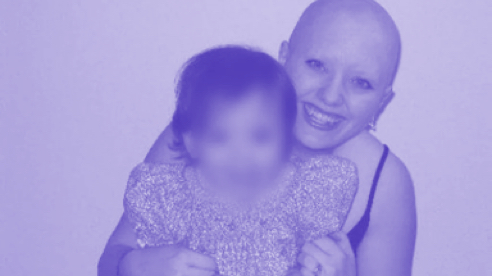
Who is Hope?
Share this episodeSEASON 01 | EPISODE 02Who is Hope?We delve deeper into the story of Hope Ybarra, a young mother whose family discovers she’s been faking her eight-year-long battle with terminal cancer and begins to suspect her own health isn’t all she’s...

What’s in the Water in Tarrant County?
Share this episodeSEASON 01 | EPISODE 03What’s in the Water in Tarrant County Andrea speaks to Deanna Boyd, the crime reporter who broke the Hope Ybarra case and discovers that Hope's was one of many Munchausen By Proxy cases in Tarrant County that Deanna...

Nobody Would Believe Me
Share this episodeSEASON 01 | EPISODE 04Nobody Would Believe MeAs we learn from Detective Mike Weber, the father in a Munchausen by Proxy case can be the most important ally--or the biggest obstacle--in protecting child victims from abuse. Andrea gets...

The Blast Zone
Share this episodeSEASON 01 | EPISODE 06The Blast ZoneAs Andrea contemplates what the future looks like for survivors of Munchausen by Proxy, she gets an unexpected message from two young women who’ve lived it. After appearing with Marc Feldman on a podcast,...

Can They Be Saved?
Share this episodeSEASON 01 | EPISODE 07Can They Be Saved?Andrea delves deep into her questions around the psychopathology of Munchausen by Proxy perpetrators. Floored by the similarities in the many cases she’s researched: she talks to two of the world's...
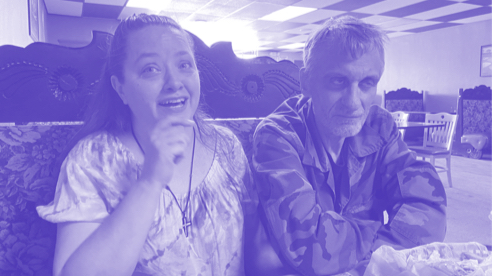
There’s Hope
Share this episodeSEASON 01 | EPISODE 08There's HopeAndrea has made an intense connection with Hope Ybarra's family, and asked experts, doctors, and the detective so many of her burning questions about Munchausen by Proxy. But she's become increasingly...
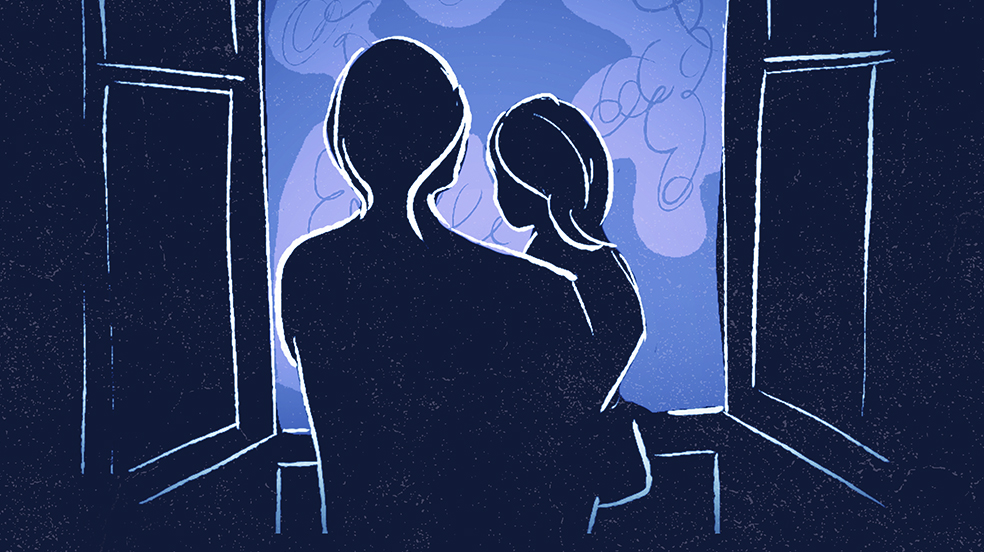
Blunt Force Instrument
Share this episodeSEASON 02 | EPISODE 01Blunt Force InstrumentMeet Andrea Dunlop, accomplished novelist and mother, as she embarks on a journey to understand the series of events that tore her family apart. In the first episode, we learn how Andrea first...

What Do We Do About Brittany?
Share this episodeSEASON 02 | EPISODE 02What Do We Do About Brittany?Heather Harris was one of many friends who was concerned about Brittany’s desperate need for attention for her daughter’s medical issues, and her inconsistent reports about Alyssa’s eating...

Where There’s Smoke
Share this episodeSEASON 02 | EPISODE 03Where There's SmokeDetective Mike Weber dives into the digital rabbit hole of Brittany’s online activity and makes a discovery so shocking it turns his investigation on its head and reveals the depths of depravity...

All In
Share this episodeSEASON 02 | EPISODE 04All InIn this season of Nobody Should Believe Me, we've heard from Sheriff Bill and Laura Waybourn about their concern for Alyssa- who was a distant family member of theirs. Now, we take some time to get to know this...

Tangled
Share this episodeSEASON 02 | EPISODE 05TangledWe hear more about Alyssa’s turbulent journey to become a Waybourn, as the family fights through a system that doesn’t know how to deal with medical child abuse. The Waybourns face the daunting task of...

The Trial
Share this episodeSEASON 02 | EPISODE 06The TrialYears after being separated from her daughter Alyssa, the Brittany Phillips case finally heads to trial. Dawn Ferguson, the prosecutor on the case elucidates the challenges of convincing a jury that a mother...

Megan
Share this episodeSEASON 02 | EPISODE 07MeganIn the wake of obtaining shocking public records about her sister’s case, host Andrea Dunlop decides to divulge the details of the second investigation into her sister, Megan Carter. Seated alongside Detective...

Only the Beginning
Share this episodeSEASON 02 | EPISODE 08Only the BeginningIn the aftermath of Brittany Philips' conviction, Alyssa faces a daunting new reality: the path to recovery. The long-term physical and psychological effects of Munchausen by Proxy abuse cast a long...

Pandora’s Box
Share this episodeSEASON 02 | EPISODE 09Pandora's boxIn this gripping episode, we delve into the heart-wrenching account of Jordyn Hope, another survivor of medical child abuse. Taking a brief departure from Alyssa's story, we shine a spotlight on a far more...

Everything Everything Everything
Share this episodeSEASON 02 | EPISODE 10Everything Everything EverythingIn the finale of Season 2, we finally hear from the person at the center of our story: Alyssa Waybourn. Despite the immense challenges she has faced, Alyssa shines as a beacon of...
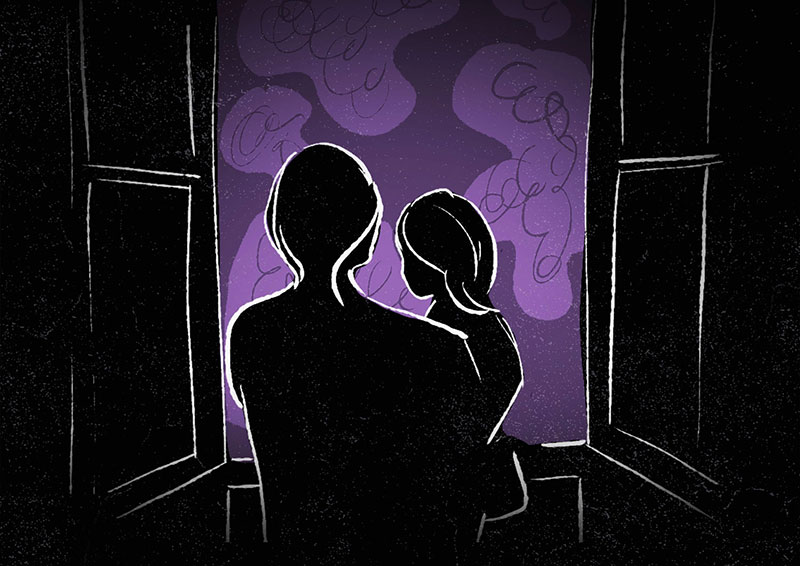
Special Report: Watching Take Care of Maya (re-release)
Share this episodeSEASON 03 | EPISODE 01Special Report: Watching Take Care of Maya (re-release) Warning: This content includes references to suicide and child abuse. If you or someone you know is having thoughts of suicide, help is available. Call or text...

Shelter
Share this episodeSEASON 03 | EPISODE 02Shelter As the Maya Kowalski case heads to trial, we dig into the massive trove of documents about this case and begin to unpack what we know about what really happened during Maya Kowalski’s fateful stay at Johns...

In a Heartbeat
Share this episodeSEASON 03 | EPISODE 03In a HeartbeatIn our third episode, we look at a central piece of the story that was left unfinished at the time of Beata Kowalski’s death: the police investigation into her for medical child abuse. Along with...

Retaliation
Share this episodeSEASON 03 | EPISODE 04RetaliationNote: This episode contains sensitive content related to child abuse and suicide. Listener discretion is advised. Beata Kowalski’s tragic death by suicide in January of 2016 is at the center of the $220...

The Women
Share this episodeSEASON 03 | EPISODE 05The WomenIn the flattened version of the Maya Kowalski story that has dominated the headlines, Beata Kowalski is a mother who fell prey to age-old biases against women. This story attaches itself to the well-documented...

The Believers Part 1
Share this episodeSEASON 03 | EPISODE 06The Believers Part 1In today’s episode, Andrea seeks an outside perspective on the controversial Maya Kowalski case. Laura Richards, host of Crime Analyst and cohost of the Real Crime Profile podcast, joins Andrea to...

The Believers Part 2
Share this episodeSEASON 03 | EPISODE 07The Believers Part 2As the Kowalski v Johns Hopkins All Childrens trial barrels forward, new information comes to light each day about what really happened to Maya Kowalski during her time in the hospital. In part 2 of...

Trial of the Century
Share this episodeSEASON 03 | EPISODE 08Trial of the CenturyWith a verdict in the case days away, host Andrea Dunlop unpacks some of what’s happened so far in the Kowalski v Johns Hopkins All Childrens trial with lawyer and trial consultant Jonathan Leach....

The Verdict
Share this episodeSEASON 03 | EPISODE 09The VerdictAndrea and special guest Bex (aka our Florida pediatrcian friend) process the shocking verdict in the Maya Kowalski trial. After 9 weeks of testimony, the jury awarded the Kowalski family nearly $300 million...

The Verdict Part 2
Share this episodeSEASON 03 | EPISODE 10The Verdict Part 2Andrea checks in with lawyer and trial consultant Jonathan Leach hours after the Kowalski verdict comes down. They talk about the judge’s decision to disallow testimony from the defense on medical...

Star Witness
Share this episodeSEASON 03 | EPISODE 11Star WitnessAs we continue to process the far-reaching implications of the shocking verdict in the Kowalski case, we take a closer look at Maya Kowalski’s testimony and what we know about her. She’s emerged as a...

System Override
Share this episodeSEASON 03 | EPISODE 12System OverrideWith the jury's stunning $242 million verdict in favor of the Kowalski family, host Andrea Dunlop looks at why this case has struck such a nerve on both sides of the political spectrum. She examines why...

What Now?
Share this episodeSEASON 03 | EPISODE 13What Now?Just when we thought the endless saga of Kowalski v Johns Hopkins All Childrens was over...it turns out it might only be beginning. In this episode, lead attorney for the Johns Hopkins All Childrens defense...

Media Circus
Share this episodeSEASON 03 | EPISODE 14Media CircusThis week Andrea examines how the harrowing and complex story of the Maya Kowalski case turned into a pop culture moment, and spread dangerous misinformation in the process. We continue our conversation...

The Trials of Dr. Sally Smith (Season Finale: Part 1)
Share this episodeSEASON 03 | EPISODE 15The Trials of Dr. Sally Smith (Season Finale: Part 1)In an exclusive interview with Dr. Sally Smith, host Andrea Dunlop travels to Florida to speak to the embattled child abuse pediatrician about her life and work and...

Bad Press (Season Finale: Part 2)
Share this episodeSEASON 03 | EPISODE 16Bad Press (Season Finale: Part 2)In the second part of our exclusive interview with Dr. Sally Smith, we discuss how the media coverage of her reached a fever pitch and turned her life and career upside down. We explore...

Dangerous Women (Season Finale: Part 3)
Share this episodeSEASON 03 | EPISODE 17Dangerous Women (Season Finale: Part 3)In the third and final installment of our exclusive interview with Dr. Sally Smith, she shares her side of what happened in the Maya Kowalski case, revealing how perilous Maya’s...

What Jack Knew
Share this episodeSEASON 03 | EPISODE 18What Jack KnewAs we prepare to launch Season Four next month, we’re revisiting the subject of Season Three—the landmark Kowalski v. Johns Hopkins All Children’s verdict, in which a jury awarded Jack Kowalski more than...

What Happened to Beata?
Share this episodeSEASON 03 | EPISODE 19What Happened to Beata?This week's episode delves into the intricate details surrounding Beata Kowalski's death, which was central to the Kowalski's lawsuit against Johns Hopkins All Children's, as well as the...

Kowalski Case Update with Ethen Shapiro
Share this episodeSEASON 03 | EPISODE 20 Kowalski Case Update with Ethen Shapiro Join Andrea as she delves back into the ongoing legal battle of Kowalski v. Johns Hopkins All Children's Hospital, with Ethen Shapiro, the lead defense attorney for Johns...
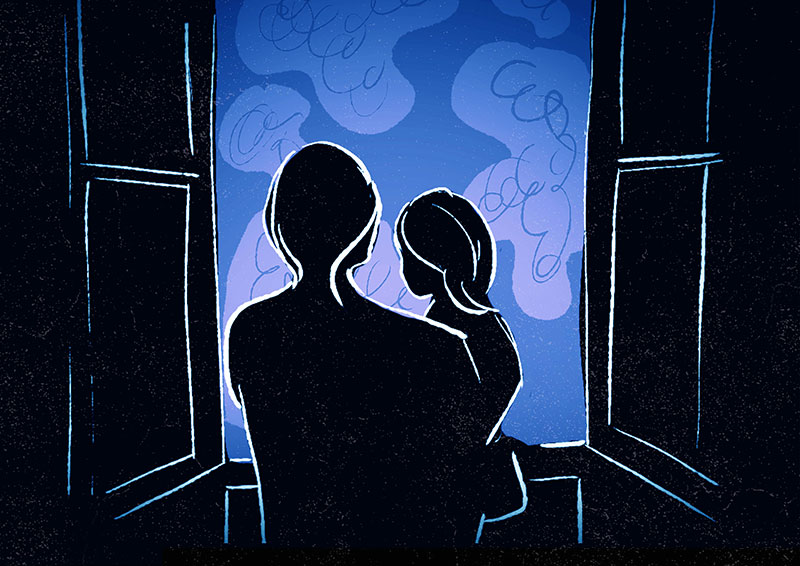
Welcome to Hutchinson
Share this episodeSEASON 04 | EPISODE 01 Welcome to Hutchinson Welcome to Season 4 of Nobody Should Believe Me! This season we are following the story of Jordyn Hope as they unravel the secrets of their childhood. After revelations that they were abused as a...

“I Brought You Into This World I Can Take You Out”
Share this episodeSEASON 04 | EPISODE 02 “I Brought You Into This World I Can Take You Out” While visiting their hometown, Jo reconnects with their older sister, Crystal, to have the deeply honest and heart-wrenching conversation their mother never wanted...

Not Without My Daughter
Share this episodeSEASON 04 | EPISODE 03 Not Without My Daughter As we dig deeper into Jo’s history, we tackle one of the many confusing aspects of their childhood: their paternity. We navigate the many twists and turns around the father figures in Jo’s...


